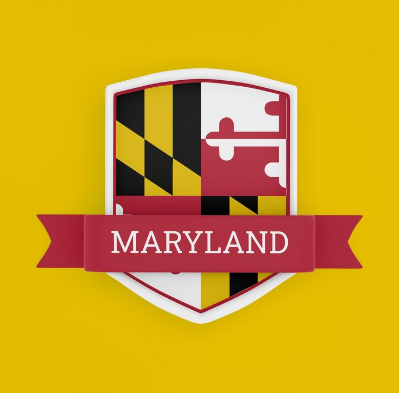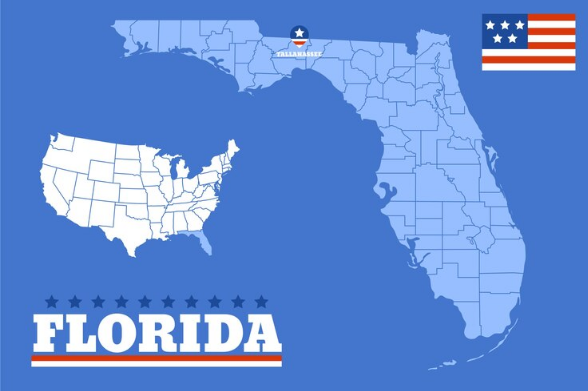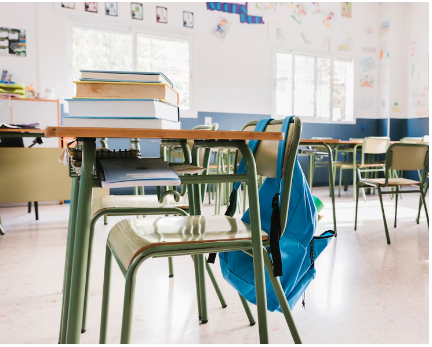Dyslexia Schools In Arizona [New Updates]

When evaluating dyslexia-friendly schools in Arizona, it's essential to apply a rigorous, multi-faceted approach to ensure that these institutions truly support students with dyslexia. Schools should be assessed based on their ability to offer specialized programs, trained staff, evidence-based teaching methods, and access to assistive technology.
In Arizona, schools that are considered dyslexia-friendly often excel in these areas, providing a supportive environment that fosters academic and personal growth for students with dyslexia.
By collaborating with experts, collecting data through surveys and observations, and validating findings with parents and educators, we can confidently recommend schools that genuinely meet the needs of dyslexic students.
Continuous monitoring and feedback ensure that these recommendations remain relevant and effective, offering Arizona families reliable guidance in choosing the right educational setting for their children.
This article will guide you through some of the top dyslexia-friendly schools in the area, providing you with the information you need to make an informed decision for your child's education.
The schools recommended have been carefully evaluated based on their specialized programs, the dedication of their staff, and their use of proven teaching methods.
We’ve spoken with parents, educators, and experts, and seen firsthand what works. The schools that made the list have shown a real commitment to helping students with dyslexia succeed, both academically and personally.
We want to make sure you have the information you need to choose a school where your child will feel supported, understood, and encouraged to reach their full potential.
What is the Percentage of Dyslexia Amongst Students In Arizona?
In Arizona, approximately 20% of students are estimated to have dyslexia or related reading difficulties. This figure aligns with national estimates from the National Institutes of Health, which suggest that about one in five individuals may experience dyslexia or reading-related challenges.
The International Dyslexia Association – Arizona Branch supports this estimate, highlighting that up to 20% of people exhibit symptoms of dyslexia. (az.dyslexiaida.org)
However, it's important to note that dyslexia is often underdiagnosed. Many students with dyslexia may not be formally identified, especially if they develop coping strategies or if schools lack specific programs to address dyslexia.
To address this, Arizona has implemented several initiatives:
- Mandatory Dyslexia Screening: As per Arizona law, all public schools are required to screen students in kindergarten and first grade for indicators of dyslexia within the first 45 days of the school year.
- Approved Screening Tools: The Arizona Department of Education has approved tools like the i-Ready Assessment as universal literacy and dyslexia screeners to help schools identify students at risk.
- Teacher Training: Legislation such as SB1544 allocates funds for teacher training in early literacy and dyslexia interventions, ensuring educators are equipped to support students with reading difficulties. (azleg.gov)
These measures aim to improve early identification and support for students with dyslexia, enhancing their educational outcomes.
For more detailed information and resources, you can visit the International Dyslexia Association – Arizona Branch and the Arizona Department of Education.
Legislation and Policies for Dyslexia In Arizona
Arizona has implemented a comprehensive framework to support students with dyslexia, encompassing legislation, screening protocols, educator training, and individualized education plans. Below is are some key policies and resources:
Arizona Dyslexia Handbook
The Arizona Dyslexia Handbook serves as a foundational resource for educators and families. It provides guidance on identifying dyslexia, effective instructional strategies, and available resources. This handbook was developed in response to Arizona Revised Statutes (A.R.S.) §15-249.10, which authorized the Arizona Department of Education (ADE) to create a manual to assist schools in supporting students with dyslexia.
Dyslexia Screening and Intervention (A.R.S. §15-704)
Under A.R.S. §15-704, Arizona mandates that all public schools screen students in kindergarten through third grade for indicators of dyslexia within 45 days of enrollment. The screening assesses skills such as phonological awareness, rapid naming, and letter-sound correspondence. If indicators are present, schools must notify parents and provide appropriate interventions.
Dyslexia Training Designee (A.R.S. §15-211)
A.R.S. §15-211 requires each school campus serving K–3 students to designate at least one teacher as a Dyslexia Training Designee (DTD). This individual must undergo specialized training in reading instruction, intensifying instruction, and understanding and recognizing dyslexia. The goal is to ensure that every campus has a trained professional to support students with dyslexia. (azed.gov)
House Bill 2170 – "Say Dyslexia" Bill
In 2025, Arizona passed House Bill 2170, known as the "Say Dyslexia" bill. This legislation mandates that a child's Individualized Education Plan (IEP) explicitly states if they have a dyslexia diagnosis. The bill aims to ensure that students receive appropriate services and interventions by formally recognizing dyslexia within educational plans. (az.dyslexiaida.org)
Move On When Reading (MOWR) Initiative
The MOWR policy focuses on early identification and support for struggling readers in grades K–3. It requires schools to implement evidence-based reading instruction and interventions. Students who do not meet reading proficiency standards by the end of third grade may be retained, emphasizing the importance of early literacy development. (azed.gov)
What Type of School Is Best For a Dyslexic?
The ideal schools are the ones where students can learn without all that unnecessary stress weighing them down.
Plus, these schools are all about recognizing the unique strengths that come with dyslexia, like creativity and thinking big-picture.
If your kid has a special interest, whether it's engineering, chess, music, or anything else under the sun, these schools give them the time and space to chase their passions.
Forget about just hunting for "reading programs" right away because, believe it or not, dyslexic students often thrive when their reading lessons align with their interests.
Now, here's the deal: if your child isn't loving school and isn't coming home all pumped up about learning, it might be time to explore other options. And guess what? That's perfectly okay – even awesome.
You can take your child out of a place that doesn't fit, even if you don't have the next school lined up right away. It's a powerful message to your child that you're in their corner and ready to support them.
Let them take a breather, catch up on some sleep, and in the meantime, you can figure out the next steps together.
Looking for learning difference/dyslexia friendly schools? Here are some must ask questions to help you pick the right dyslexia friendly school for your child.
Before attending your meeting, do a bit of background research. The more you know about dyslexia, teacher education programs and intervention programs, the more targeted you can be with your questions and the better you will understand the answers.
Support Services for Students with Dyslexia in Arizona
Arizona offers a comprehensive array of support services for students with dyslexia, encompassing statewide initiatives, specialized educational institutions, and community resources. Here's are key programs and services available:
Statewide Dyslexia Support Initiatives
Arizona Department of Education (ADE): The ADE provides extensive resources to support students with dyslexia, including:
- Arizona Dyslexia Handbook: A guide designed for teachers and administrators to help recognize characteristics consistent with dyslexia and aid students effectively.
- Dyslexia Resource Guides: These guides offer technical assistance to support families and educators in identifying and supporting students with dyslexia.
- Dyslexia Training Designee (DTD) Program: Mandated by legislation, every K–3 campus must have a trained DTD to support educators in instructional practices and interventions for students showing characteristics of dyslexia.
- Universal Literacy and Dyslexia Screener Guide: Outlines approved screeners for K–3 students to identify those at risk for reading difficulties, including dyslexia.
Source; (azed.gov)
Specialized Educational Institutions
The Jones-Gordon School (Paradise Valley, AZ): An independent school dedicated to students with learning differences, offering individualized instruction and support for dyslexia. (jonesgordon.org)
New Way Academy (Phoenix, AZ): A premier K–12 independent day school catering to children with specific learning disabilities, including dyslexia.
Community and Nonprofit Resources
IDA Arizona (International Dyslexia Association - Arizona Branch): A nonprofit organization committed to helping individuals affected by dyslexia. They offer resources, training, and advocacy to support structured literacy in classrooms across Arizona. (az.dyslexiaida.org)
Higher Education Support
SALT Center at the University of Arizona: Provides academic support services to University of Arizona students with learning and attention challenges, including dyslexia. Services include personalized learning strategies, tutoring, and educational planning. (salt.arizona.edu)
Best Dyslexia schools In Arizona
Arizona offers several reputable schools that specialize in supporting students with dyslexia. These institutions provide tailored programs, certified educators, and structured literacy approaches to help students thrive academically. Here are some of the top dyslexia-focused schools in Arizona:
1. The Jones-Gordon School – Paradise Valley, AZ
The Jones-Gordon School is an innovative private school dedicated to educating high-potential students with learning differences such as dyslexia and ADHD. Since 2010, they've been providing a supportive environment tailored to each student's unique needs. Their programs include reading intervention, executive function coaching, and the use of the Wilson Reading System.
2. New Way Academy – Phoenix, AZ
Established in 1968, New Way Academy is Arizona's premier K-12 independent day school catering to children with specific learning disabilities, including dyslexia, dyscalculia, and dysgraphia. They offer a specialized approach to education, addressing each student's specific learning needs and building on their strengths.
3. AZ Aspire Academy – Tempe and Litchfield Park, AZ
AZ Aspire Academy provides one-to-one academic instruction in a comfortable and engaging learning environment. They customize each student's education plan, ensuring individualized curriculum and mastery-based coursework. Their approach benefits students with dyslexia by offering personalized support and instruction.
4. Pathways School and Evaluation Center – Gilbert, Mesa, and Tucson, AZ
Pathways School is a non-profit private day school serving students in grades K-12 with various learning differences, including dyslexia. They focus on instilling confidence and empowering students to succeed by developing an intrinsic desire to learn. With campuses in Gilbert, Mesa, and Tucson, they offer accessible support across the state.
5. The Academy AZ – Phoenix, AZ
The Academy AZ is a specialized school for children with dyslexia, ADHD, and non-traditional learners. They offer a full-day program at their North Phoenix campus, incorporating STEM into their curriculum to engage students in real-world problem-solving and critical thinking. Their hands-on approach benefits students with dyslexia by providing interactive and engaging learning experiences.
6. Brightmont Academy – Multiple Locations in AZ
Brightmont Academy offers one-to-one instruction tailored to each student's unique needs, including those with dyslexia. Their personalized approach allows students to progress at their own pace, ensuring mastery of each subject. With multiple locations in Arizona, they provide accessible support for students across the state.
7. Lexis Preparatory School – Scottsdale, AZ
Lexis Preparatory School specializes in educating students with learning differences, including dyslexia. They offer a comprehensive K-12 curriculum tailored to each student's needs, focusing on building confidence and academic success. Their small class sizes and individualized instruction benefit students requiring specialized support.
8. On-Track Academy – Scottsdale, AZ
On-Track Academy provides personalized education plans for students with learning differences, including dyslexia. They offer flexible scheduling and customized instruction to meet each student's unique needs, ensuring academic progress and confidence building.
9. Valley Christian High School – Chandler, AZ
Valley Christian High School offers the VINE (Valley's Individual Needs Enhancements) program, providing support for students with learning differences such as dyslexia. Their program includes individualized instruction and accommodations to ensure academic success in a college-preparatory environment.
10. Gateway Academy – Phoenix, AZ
Gateway Academy specializes in educating students with autism spectrum disorders and other pervasive developmental disorders, including those with dyslexia. They offer individualized programs structured through each student's Individual Education Plan (IEP), focusing on strengths and ensuring full potential is met.
Also read about Dyslexia Friendly Schools In Michigan



